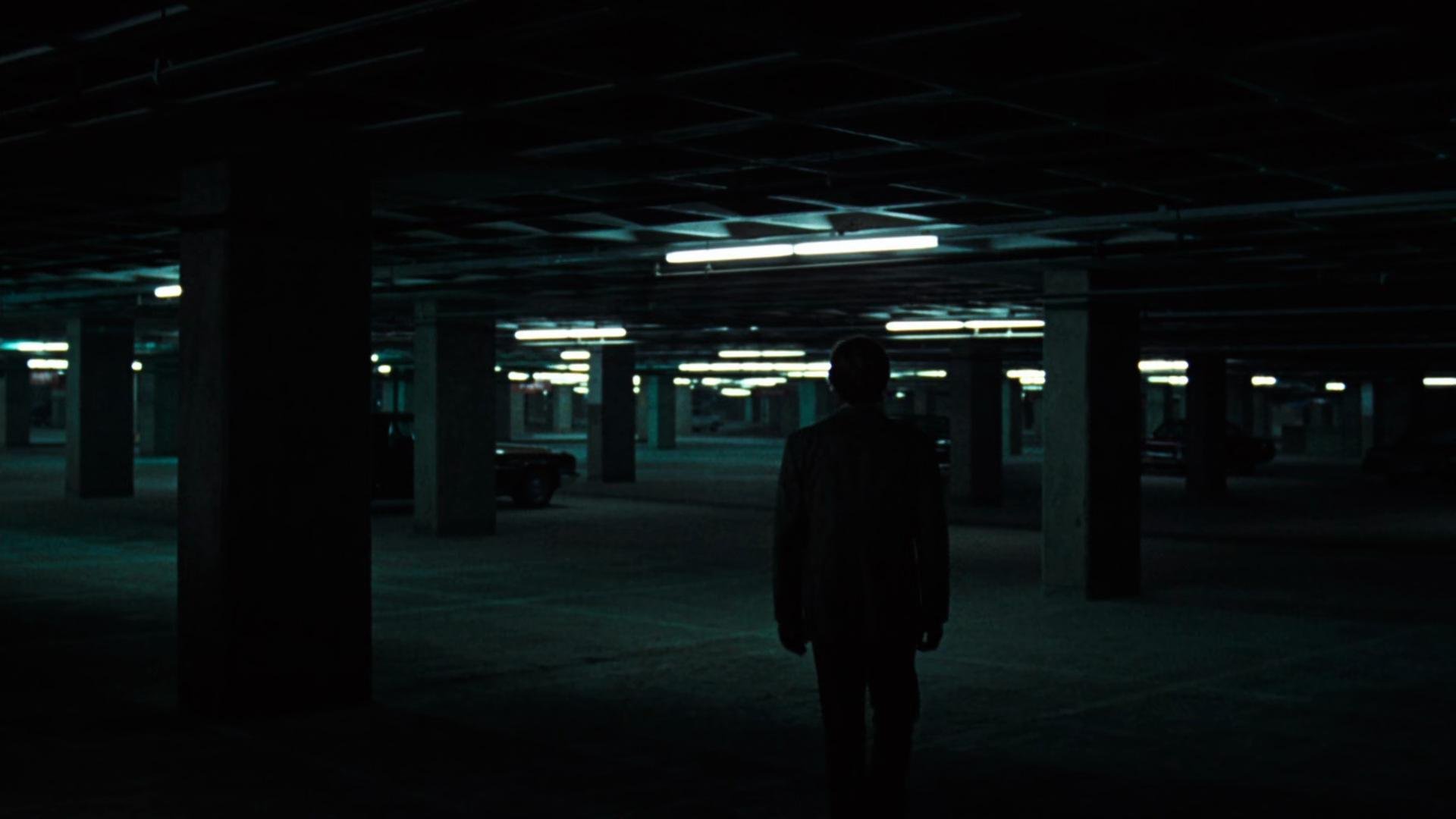All the President’s Men (1976) Review
A shady meeting with Deep Throat in the interstices of Nixon’s America: a parking lot
It’s nighttime in the capital, an empty parking lot, shadows dazzle the eyes, we struggle to see. There’s a man in the corner. We can’t see his face and yet know he has the answers. Why does the man with answers prowl in such places? Nothing is embellished with photography: this is the heyday of New Hollywood, its natural lighting and seedy realism. All the President’s Men (1976) is about paranoia, affliction, claustrophobia. It's a time of violent degradation in the cities, economic malaise, urban decay, political corruption. There’s nothing flowery or sunny anymore: Woodstock is no more. Only air-conditioned environments, bureaucracy and procedure.
Bob Woodward (Robert Redford) and Carl Bernstein (Dustin Hoffman) play, as reporters, the good-cop-bad-cop routine. Hoffman steals the show with an anxious, restless performance. A normal person wouldn’t allow him to enter the house, but would unleash the dogs. He’s fast and nosy, a nightmare for anyone conducting affairs with discretion. Woodward, on the contrary, appears respectable – and thus he has the main source, Deep Throat – but is just as annoying.
Director Alan J. Pakula understands his material. He privileges process over story or character. It’s a movie of procedures, methods, interviews, research. One small bit of information after the other – until the obvious becomes journalistic fact. We know nothing of the reporters’ personal lives. Only the work matters, the investigation. The film succeeds in making the audience anxious not for Nixon’s downfall, but for the next clue.
This approach has its shortcomings. The film is dry on emotions, and cinema tends to malfunction without them. It veers too close to being a documentary. The viewer will easily get lost amidst the data, schedules, telephone numbers, false leads, and, at times, the truth. Viewers with less investigative minds than the “Woodstein” duo will be bewildered to the point of disinterest. Here the casting proved correct: without two known actors like Redford and Hoffman, who play types, the film would have been monotonous.
The procedural style also fails to bring about the moral and political issues raised by the Washington Post Watergate reporting. The limits of journalism, the ethics of it. The film never questions the most questionable modus operandi of both Woodward and Bernstein (especially Berstein). After all, can two journalists, who make a buck with headlines, publish sensitive and classified State information? If so, why and under which conditions?
None of this is properly dealt with in All the President’s Men. It’s ultimately a film about blind journalistic process. But… Sometimes virtue is found precisely in what is not there. Seen in retrospective, after so many dramas about the “importance” of journalism, All the President’s Men garners some greatness to it. At least it’s not an insufferable ode to the “free press”, such as Spielberg’s The Post (2017), nor is it a commonplace condemnation of mass media. These are just some regular guys who happen to have the job of prying into other people’s lives.
With Pakula’s austere direction, we get realism: journalists are not heroes of democracy, but obsessive, morally dubious, nosy little fellows, intrusive and inconvenient, snooping around empty parking lots. The fact that such people are (rightly) considered indispensable for our contemporary political systems––– that’s not complimentary for either side.


